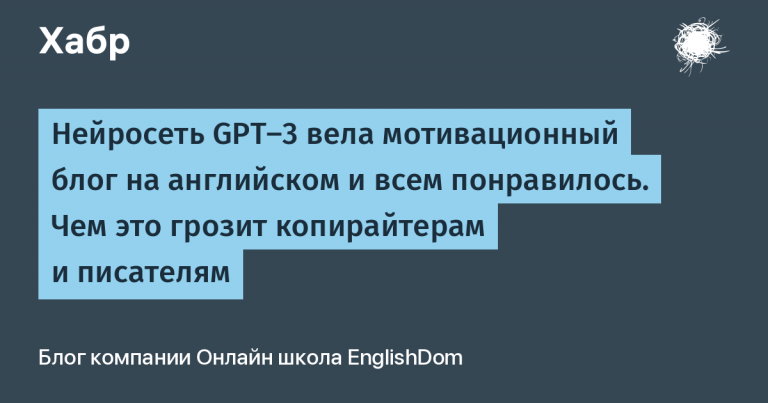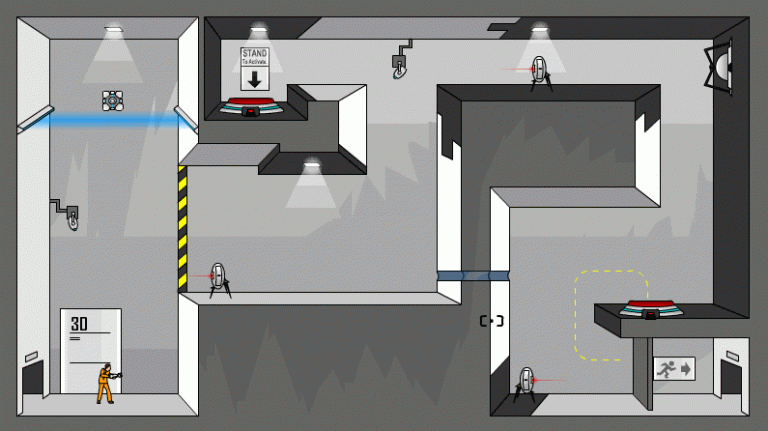what problems do interns solve at YADRO
Gaining experience in a challenging engineering profession is easier than ever. The heroes of this material are students and recent graduates of technical universities who completed the Impulse summer internship from YADRO in 2023 and remained to work in the company. The guys solve real problems: develop internal services, test storage systems and are responsible for the operation of the virtualization platform.
We spoke to young engineers about the work they do every day, the experiences they've gained and why they chose to pursue a career with YADRO.
Do you want the same? Fill in application to Impulse 2024 and pass the interview.
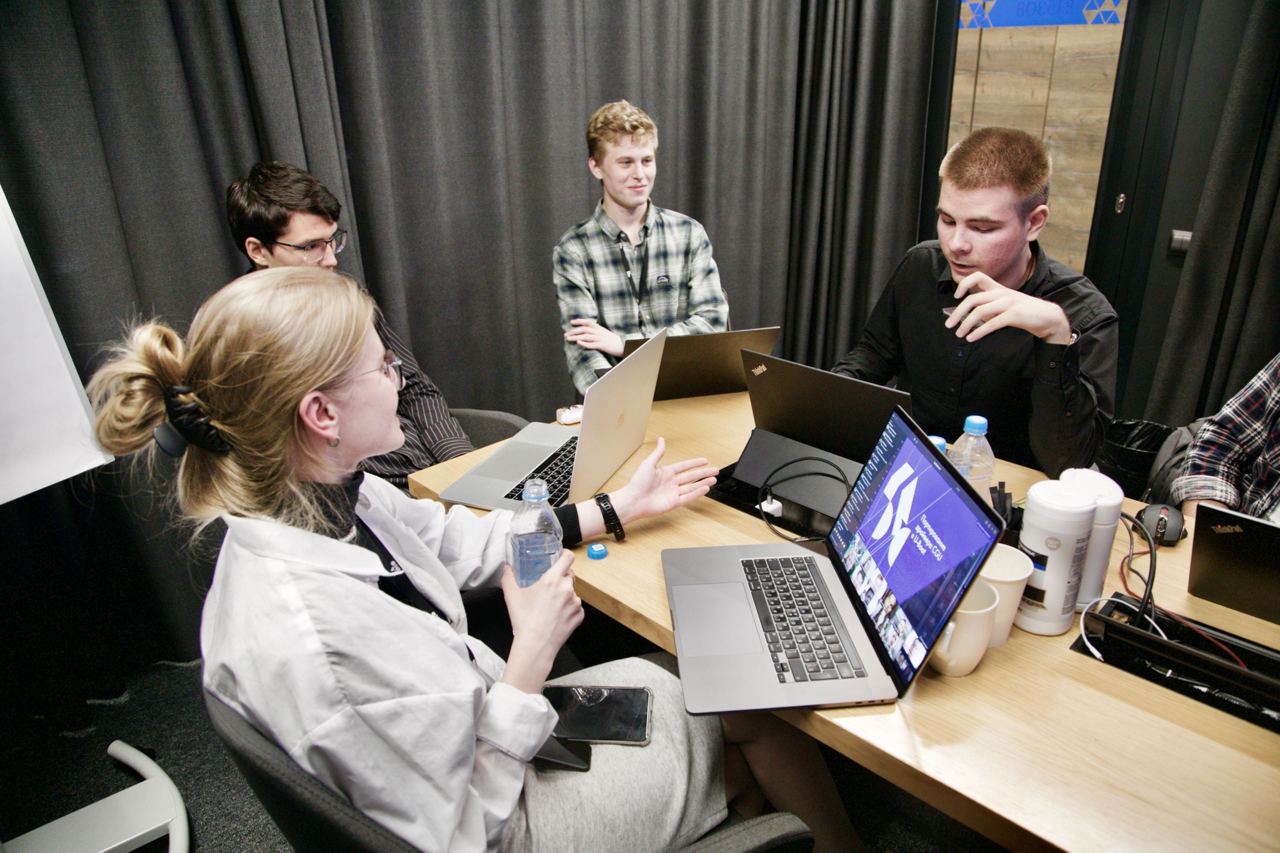
Five 2023 interns:
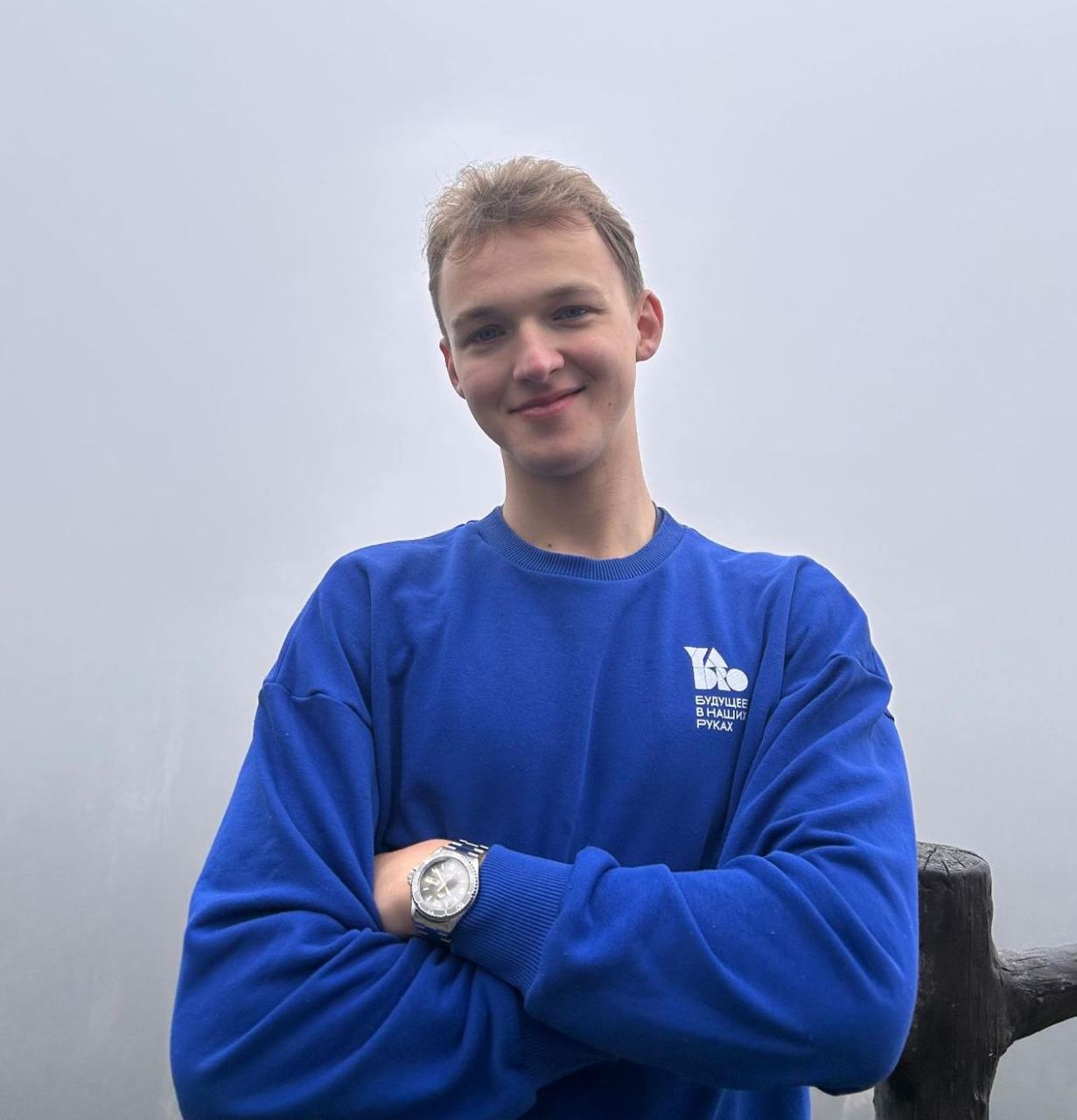
Semyon Reshetov
Trainee engineer in the department of hardware validation, testing and qualification, 2nd year student at the Faculty of Software Engineering and Computer Systems, ITMO

Maxim Sobakin
Trainee engineer in the infrastructure support group, master's student of the Faculty of Radio Engineering and Infocommunication Technologies, SUAI
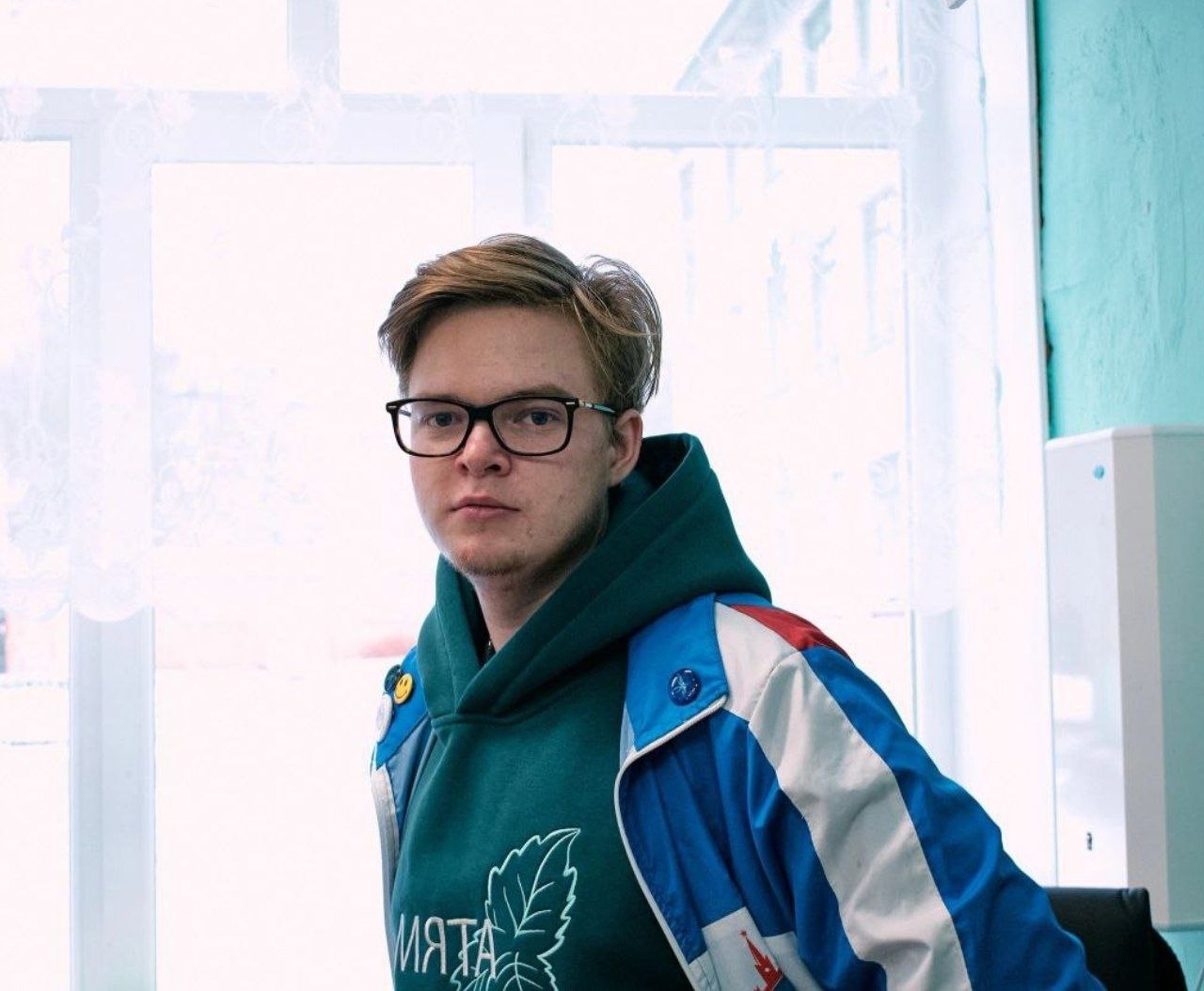
Dmitry Smirnov
Junior specialist in integration solutions in the department of server solutions and storage systems, 4th year student at the Faculty of Robotics and Integrated Automation, MSTU. Bauman

Sergey Ryndov
Junior software development engineer in the infrastructure development department, 4th year student at the Institute of Radio Electronics and Information Technologies at NSTU. Alekseeva

Polina Pankova
Trainee engineer in the software stack analysis group for server systems, 4th year student at the Institute of Computer Science and Cybersecurity, SPbPU
How did I get the internship?
Semyon Reshetov: I learned about Impulse from friends who also passed the selection process. It was necessary to send a resume and fill out an application form. Due to the heavy workload of my studies, I did everything at the last minute, but everything ended successfully – I was called for an interview and then invited to an internship.
Maxim Sobakin: I was a 4th year student at SUAI; my faculty of radio engineering and infocommunication technologies collaborated with the telecom division of YADRO in the framework of several joint programs. My studies were ending, and I was thinking about where to get a summer internship. Senior comrades from the department advised me to consider an internship at YADRO – I heard that the company was developing rapidly, I wanted to try my hand at a large organization, to learn how processes are built in it. So I applied for Impulse.
Dmitry Smirnov: Representatives of YADRO came to our university and talked about the company and areas of work. When choosing a place of practice, I considered two options: choose from the list of guaranteed places of practice where you will definitely be accepted, or try to pass the competition at YADRO. I chose the second one.
Sergey Ryndov: I learned about the internship from a university teacher who works at YADRO. During my studies, I began to look closely at companies where I could develop in the direction of DevOps. At YADRO, I was attracted by the scale and tasks close to my interests.
Polina Pankova: I learned about the internship at the Polytechnic University during the Go elective from YADRO. My friends who worked at the company at that time gave only positive reviews, so I decided to apply.
Work experience before Impulse
Semyon Reshetov: Before the internship, I developed a system for onboarding new employees at Sheremetyevo Airport – I designed the architecture and wrote code for the front-end and back-end. I did pet projects, with the help of which I studied the Linux operating system and programming languages. He also worked as a front-end developer at an online school. I indicated all this on my resume and, apparently, the interviewers liked my experience.
Maxim Sobakin: At the university I gained skills in working with C, C++, and Java languages. Self-taught Python and Matlab for use in laboratory work in various subjects, such as modeling information systems. My area of study – information security – is more concerned with the study of legal acts, laws, personal data protection and other things, but I am developing in programming. This generally helps to study and build a career.
Dmitry Smirnov: Before the internship, I worked at Hoff: testing web applications for warehouse inventory.
Sergey Ryndov: I worked as a senior laboratory assistant at a university; I didn’t have much professional experience in the company before my internship.
Polina Pankova: Before the internship, I, together with other students, developed a game on the Unreal Engine 4 for St. Petersburg Polytechnic University, and also worked at Siemens AG. There she worked on more diverse projects: migrating code from older microcontrollers to more modern ones, working with the platform for visualizing supervisory control systems WinCC OA and the Plant Simulation program for modeling complex systems and processes.
Internship tasks
Semyon Reshetov: My team is developing a reservation system for FPGA stands and other devices.
Previously, it was inconvenient to book a limited number of stands: chats, Google tables, and bots were used. My manager Anatoly Vildemanov suggested creating a convenient platform for booking – he told us more about it here. During the internship, I was organizing CI/CD using Jenkins and installing semantic versioning on some repositories.
Previously, I had not worked with Jenkins at all, but now I use it every day and support the DevOps direction in the team. Now I even have several tasks for other teams related to system-on-chip validation: Docker image building and semantic versioning.
Maxim Sobakin: I came to the position of a manual storage system tester, but my mentor suggested that I try my hand at automation. I have never regretted the change of direction. In my opinion, manual testing requires a lot of experience in working with the product, general technical knowledge and competencies, which I did not have at that time. Autotesting allows you to rely on a well-functioning framework, which is much easier for a person with little experience to learn and use.
During my internship, I was involved in adapting the framework for testing on hardware benches. Testing is mainly carried out on virtual machines, but to fully cover various situations, a real device in the laboratory is required on which scenarios unique to hardware can be tested. Now I am doing TestOps – combining the tasks of a tester and a DevOps specialist: I simplify the work of my colleagues, automate launches and add flexibility to the test framework.
“You are useful in a large team”
The group of interns I was part of also gained experience working in technical support. Something has fallen off somewhere, the deployment has not gone through or is not assembled correctly, something is wrong with the network – we appear in the chat and take the task to work. The next step was to act as “first line support,” or L1, to find someone who would solve the problem.
It's nice when a big important developer comes with a problem, and you know how to solve it and help him. You feel that you are useful in a large team.
Dmitry Smirnov: When I came for an internship at the company and was faced with real problems, I realized that my knowledge acquired at the university was about 30% enough. The rest I learned on the job. I think that I gained a tremendous experience, rare for my age.
Together with the team, we are working on an internal service for converting logs. The goal of the project is to collect service and statistical information from information systems, securely store, process and visualize it. The service helps engineers identify faults and bottlenecks, compile reports and recommendations for setting up and further developing the system.
Sergey Ryndov: When I got my internship, my team was just switching to a new virtualization platform – an excellent basis for my learning. It was necessary to study the platform, demonstrate the benefits to colleagues and perform the migration. Now I am responsible for the operation of this virtualization platform and the tools for automatic deployment of core services. He also took upon himself their support and troubleshooting.
Polina Pankova: During my internship, I worked on improving the performance of the JIT profiler at the stage of processing data collected on an FPGA (perf JIT trace). Now my colleagues and I are developing a methodology for assessing the performance of the Linux kernel.
Why did you decide to stay at YADRO?
Semyon Reshetov: I really liked the company culture: they value conscientiousness and helping colleagues, even if it goes beyond the scope of your tasks. I feel comfortable working with a team, and the tasks allow me to progress in my chosen specialty. In addition, I received permission to work remotely and was able to go to study in China. Now I combine work at YADRO and study at the Nanjing University of Science and Technology in the Software Engineering program.
Maxim Sobakin: I decided to stay at the company for several reasons. First of all, I enjoyed my internship. I saw my contribution to the common cause. Secondly, YADRO is a large and fast-growing company. In such a team, you can improve your professional skills, learn from experience, participate in discussions – in general, there is everything for qualitative growth. Thirdly, they offered me comfortable working conditions – a hybrid schedule. At that time, I had just entered my master’s program, and I had to combine further studies at the university with work.
Sergey Ryndov: It's cool here. I get practical experience in a format convenient for me, and I can combine work and study. There are great guys here who are always ready to help – even if they work in another city and can only provide advice from a distance. This opinion formed during my internship and was strengthened when I became a full-fledged member of the team. The summer internship gave me both practical skills and new theoretical knowledge, as well as soft skills – team interaction and presentation of work. This is the basis for further growth into a technical specialist.
Polina Pankova: I decided to stay because working at YADRO is a chance for me to work on interesting projects and deepen my knowledge in the field of architecture and operating systems.
What's special about Impulse
Semyon Reshetov: Having previously worked for a small startup, I have the opportunity to compare the experience to working for a large technology company. Often an internship is something temporary and optional, but at YADRO you have the opportunity to feel like a necessary part of a big project. The work here is much better organized: they use Jira, there is a transparent process for organizing tasks, and you can always contact the manager directly.
Maxim Sobakin: I liked that the task I was given was not a test and actually had an impact on the work of the department. I also appreciated the mentoring system: trainees are assigned a separate specialist who spends part of their time training them. You can always contact a mentor with questions and ask for advice. My mentor was the leading QA engineer of the DataPath department, Anton Usanov – many thanks to him.
Dmitry Smirnov: My mentor Yuri Zhukov, a leading specialist in integration solutions, introduced SCRUM meetings for trainees: we met every day and told them what we had done. It was great to get the experience of communicating “on business”; it helped organize work for the whole day. If something didn’t work out, senior colleagues were sure to help.
Sergey Ryndov: I started working on real problems from the first day of my internship under the guidance of senior engineer Yuri Boyarkin. Together with the team, I set up the Ansible configuration system, deployed OpenStack, worked with Foreman, AWX, Ceph and k8s.
Polina Pankova: What was special about the internship were, of course, the people: interns, mentors and HR managers who helped in a variety of issues.
Trainee program in 2024
If you are inspired by the guys' stories, join the Impulse summer internship, which will take place from July 1 to August 26. We invite full-time students of 2nd year and above, as well as undergraduate graduates of 2024. You can work in one of the YADRO offices in Moscow, St. Petersburg, Nizhny Novgorod, Minsk or remotely.
To participate, leave a request link until May 12. If you pass the interview successfully, you will be invited to an internship.


